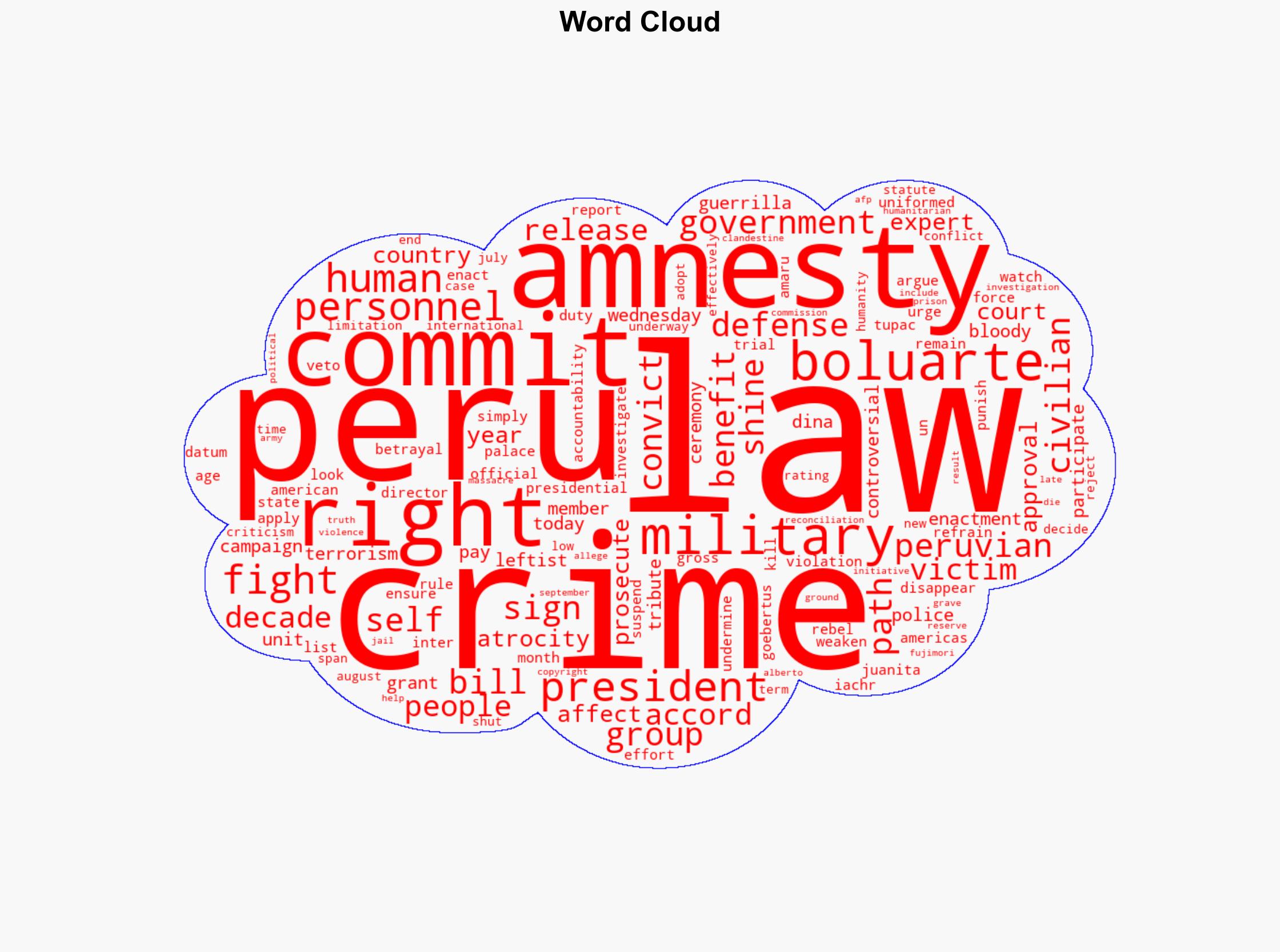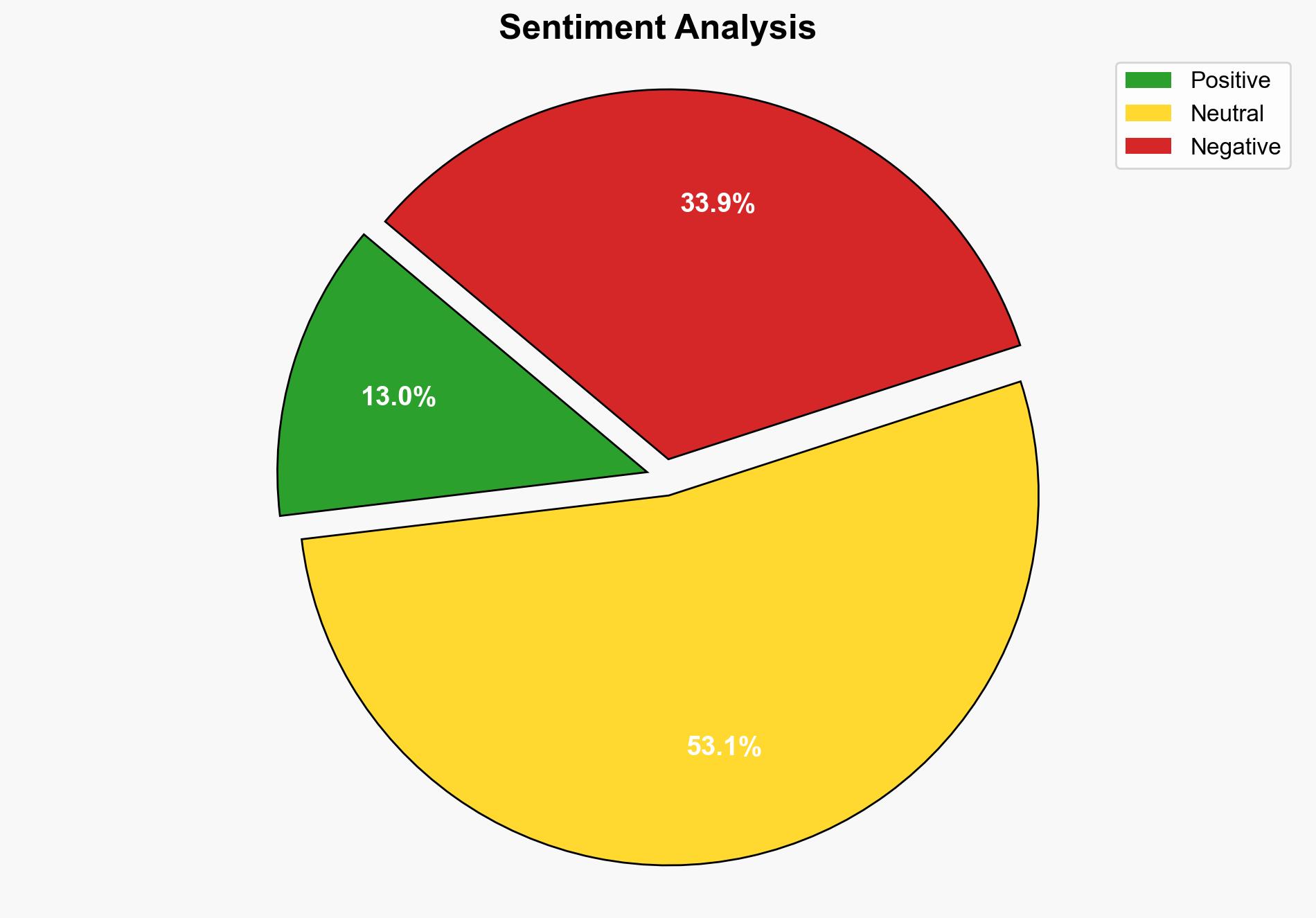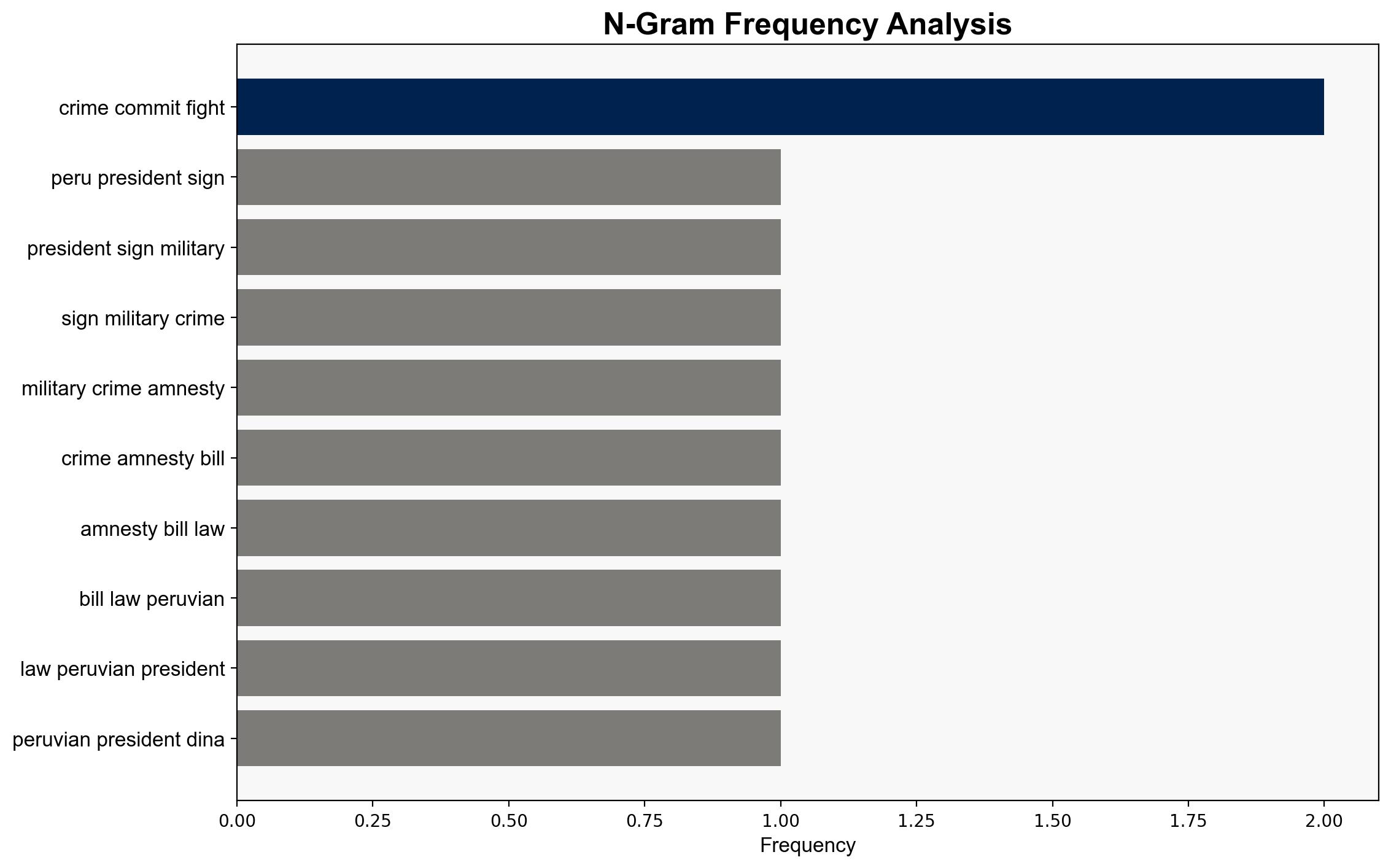Peru’s President Signs Military Crimes Amnesty Bill Into Law – International Business Times
Published on: 2025-08-13
Intelligence Report: Peru’s President Signs Military Crimes Amnesty Bill Into Law – International Business Times
1. BLUF (Bottom Line Up Front)
The enactment of the military crimes amnesty bill in Peru presents a complex situation with significant implications for human rights and political stability. The most supported hypothesis suggests that the bill is primarily aimed at consolidating political power and appeasing military forces, with a moderate confidence level. Strategic recommendation includes diplomatic engagement with Peru to address human rights concerns while monitoring potential civil unrest.
2. Competing Hypotheses
– **Hypothesis 1**: The amnesty bill is a strategic move by the government to strengthen ties with the military and police forces, ensuring their loyalty and support amidst declining approval ratings for President Dina Boluarte.
– **Hypothesis 2**: The bill is primarily a response to international pressure and domestic advocacy for reconciliation, aiming to close a contentious chapter in Peru’s history by addressing past conflicts with leftist guerrillas.
Using ACH 2.0, Hypothesis 1 is better supported due to the timing of the bill’s enactment coinciding with Boluarte’s low approval ratings and the historical reliance on military support in Peru’s political landscape. Hypothesis 2 lacks substantial evidence of significant international or domestic pressure for such reconciliation at this time.
3. Key Assumptions and Red Flags
– **Assumptions**: It is assumed that the military and police forces are pivotal to maintaining political stability in Peru. Another assumption is that the bill will not face significant legal challenges that could impede its implementation.
– **Red Flags**: The potential for increased civil unrest and international condemnation could destabilize the political environment. The lack of transparency in the decision-making process raises concerns about the true motivations behind the bill.
4. Implications and Strategic Risks
The bill may lead to increased tensions between the government and human rights organizations, potentially resulting in protests and civil unrest. There is a risk of deteriorating relations with international bodies like the Inter-American Court of Human Rights. Economically, instability could deter foreign investment. Psychologically, the bill might embolden military forces, impacting civil-military relations.
5. Recommendations and Outlook
- Engage in diplomatic dialogue with Peru to express concerns over human rights implications and encourage adherence to international legal standards.
- Monitor domestic reactions and prepare for potential humanitarian support in case of civil unrest.
- Scenario Projections:
- Best Case: The bill leads to genuine reconciliation and stability, with minimal unrest.
- Worst Case: Escalation of protests and international sanctions, leading to economic downturn and political instability.
- Most Likely: Moderate unrest with ongoing international criticism, but no significant policy reversal.
6. Key Individuals and Entities
– Dina Boluarte
– Juanita Goebertus
– Alberto Fujimori
7. Thematic Tags
national security threats, human rights, political stability, regional focus





